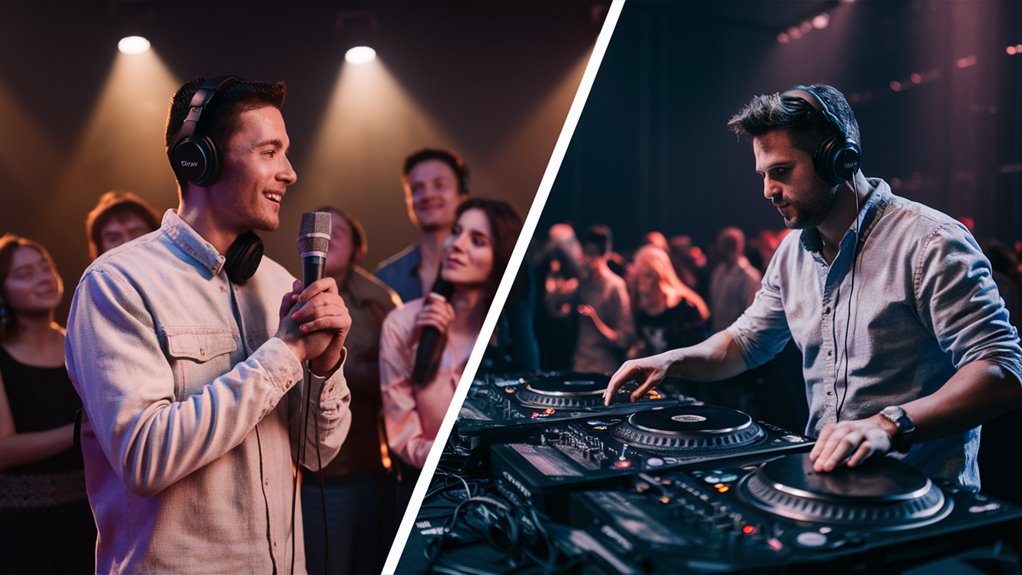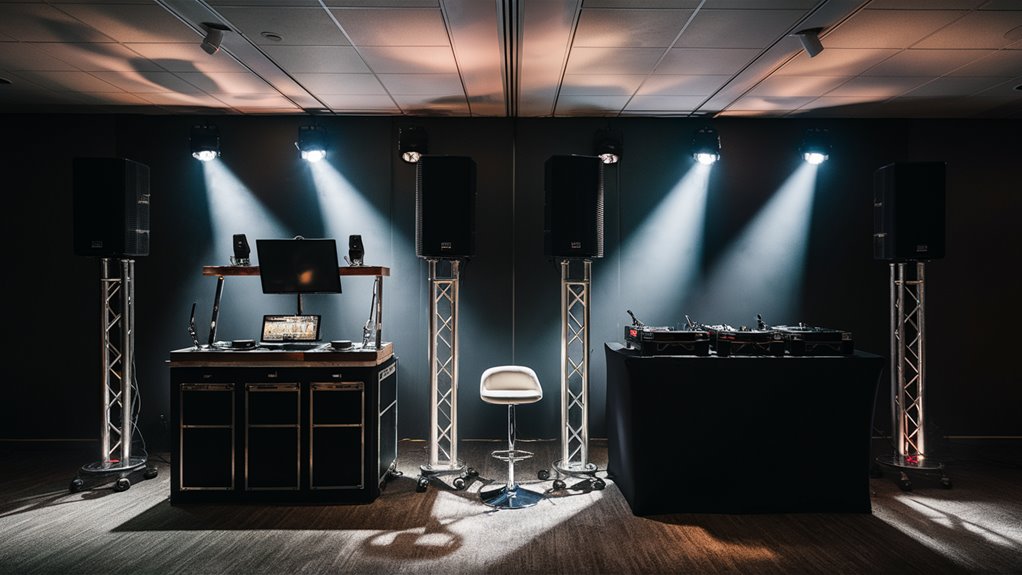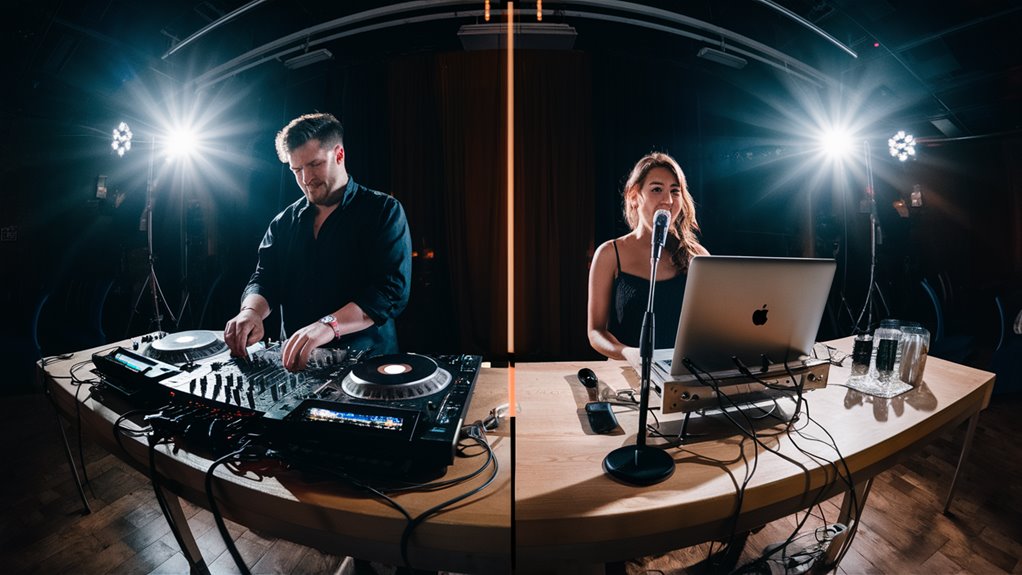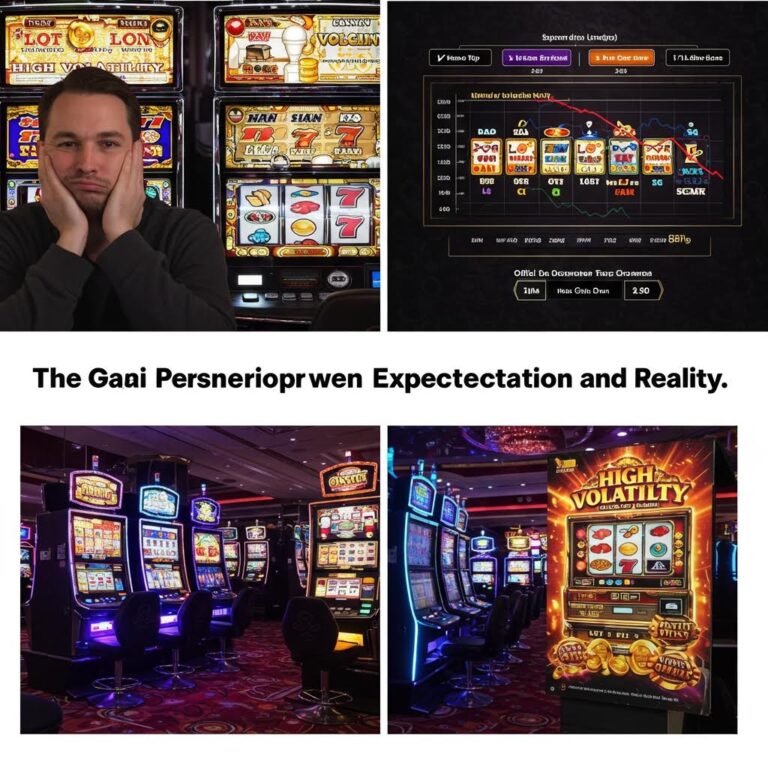
Karaoke Host vs DJ: Picking What’s Best for Your Event

Choosing a karaoke host or a professional DJ can greatly affect your event. Each option has its benefits and suits different crowds. Understanding what each provides is key.
What a Karaoke Host Does
A professional karaoke host takes care of:
- Setting up songs and equipment
- Keeping the crowd excited and organizing singers
- Assisting singers with equipment
- Making the event engaging and fun
What a DJ Does
Professional DJs handle:
- Choosing music for your event
- Seamlessly mixing sounds
- Keeping the dance floor busy
- Top-quality sound and lighting
Considering Costs
Keep these budget points in mind:
- Equipment rental costs
- Performance duration
- The professional’s skill level
- Extras like lighting or mic handling
Great for a Karaoke Host:
- Company team events
- Birthday celebrations
- Small home gatherings
- Club meetings
Great for DJs:
- Wedding receptions
- Large corporate events
- Dance parties
- Club nights
Final Ideas on Choosing
Consider these important points:
- Who’s coming and their preferences
- The size and acoustics of the venue
- Event duration and timing
- The type of fun you’re aiming for
- Your budget and what you receive in return
All About Professional Karaoke Hosts
Pro KJ Services
A professional karaoke host (often known as a KJ or Karaoke Jockey) takes full control of entertainment at events. These experts use top equipment like excellent speakers, digital mixers, quality mics, and HD screens to enhance the karaoke experience.
Skills and Equipment
Professional KJs boast large song collections including:
- Latest and classic hits
- Timeless tracks
- Variety of music styles
- Options to change keys
- Backup systems
Handling Entertainment
Capable karaoke hosts can:
- Engage the crowd effectively
- Organize song queues expertly
- Quickly solve sound issues
- Make performers comfortable
- Ensure smooth events
What to Look for in a KJ
When choosing a karaoke service, check if they have:
- Insurance
- Backup equipment
- Updated song list
- Positive past reviews
- Experience in shows
- MC abilities
- Quick tech troubleshooting
Your karaoke person must read the room well. They should keep fun high and let everyone participate. They need to integrate smoothly with other aspects of your event.
DJ Skills and Services
Mastering DJing
Professional DJs excel with their skillful music selection, smooth blending, and crowd reading. Expert DJs boast extensive music libraries catering to various tastes, ensuring everyone enjoys. They are masters at maintaining the right vibe all party long.
Advanced DJ Equipment
Their equipment includes:
- Top-notch speakers
- Professional mixing desks
- Backups to prevent stoppages
They deliver fantastic sound and transition smoothly between tracks, showcasing their live performance skills.
Cost Comparison: Karaoke Hosts vs. DJs

Starting Prices
Karaoke hosts might start at $150-300 for a few hours, while DJs might start at $400-800 for the same duration. These figures help you plan, but other factors may increase the cost.
Karaoke Basics
- Sound systems
- Mics
- Song selections
- 베트남밤문화
- Standard audio
- Song management
DJ Pro Kit
- Superior speakers
- Fancy lights
- Mixing tools
- Advanced sound control
- Sound adjustments
Additional Costs
Consider including:
- DJ karaoke add-on: $50-100 extra
- Karaoke music: $50-100 additional
- Improved lights: Varies by need
- Video screens: Adds to cost
- Extended hours: Charged by the hour
Considering Gear Quality
Professional DJs generally bring superior equipment, such as:
- Professional speakers
- Excellent mixers
- Advanced lights
- Backup setups
Karaoke hosts provide:
- Adequate PA systems
- Essential mics
- Standard lights
- Song software
Understanding Crowd Engagement: Karaoke Hosts vs DJs
Event Fun Dynamics
How karaoke hosts and DJs keep people entertained differs significantly. This knowledge aids in better planning.
How Karaoke Hosts Do It
Karaoke professionals excel at:
- Managing songs and singers
- Announcing and introducing on the fly
- Making events lively with stories and interactions
- Connecting with each guest
How DJs Keep It Going
DJs maintain fun by:
- Selecting music based on the crowd’s mood
- Choosing tracks that maintain energy levels
- Blending songs without pausing the rhythm
- Engaging with the crowd through music
How People Get Involved
In Karaoke
During karaoke, attendees:
- Sing and pick songs
- Support and applaud singers
- Form connections through music
- Play a big part in the fun
At DJ Events
At DJ events, attendees:
- Dance together
- React to the DJ’s music selections
- Keep the excitement going throughout the event
- Experience the music as one
Space and Equipment Needs for Professionals
Choosing a Venue
Selecting the right venue is crucial. Choose a place that matches your guests’ needs and has space for dancing and performances. Proper power arrangements for all equipment are essential.
Karaoke Equipment Needs
Karaoke requires:
- Quality sound equipment like speakers and amplifiers
- A sound mixer for clear audio
- Professional mics with backups
- Large screens for lyrics
- Monitors so singers can hear themselves
The setup should ensure that everyone can see and pub crawls hear well while maintaining the fun atmosphere. Effective soundproofing eliminates echoes and keeps vocals clear.
Equipment for DJs
DJs need:
- High-quality speakers with strong bass
- Professional mixing board with multiple inputs
- DJ tools like turntables or controllers
- Mood-enhancing lights
- Booth speakers for accurate mixing
Booths should be well-placed to keep the crowd moving and sound excellent. Proper ventilation and cooling are important for equipment used over long periods.
Space and Equipment Safety
Venues must have:
- Secure areas for expensive equipment
- Cool rooms for sensitive electronics
- Robust power setups
- Safe wiring arrangements
- Accessible loading areas with sufficient space

